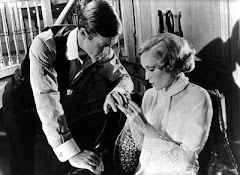
1 : concerned excessively or exclusively with oneself : seeking or concentrating on one's own advantage, pleasure, or well-being without regard for others
2 : arising from concern with one's own welfare or advantage in disregard of others
3 : being an actively replicating repetitive sequence of nucleic acid that serves no known function
Selfishness is in The Great Gatsby, and it provides the reasoning for the title. Nick Carraway, the narrator, awards the title "great" to Gatsby
 not because Gatsby is a good or honest person ( because in reality he is not) or because his romantic quest to win Daisy Buchanan away from her husband is realistic or commendable ( this isn't true either). Gatsby deserves to be called "great" because of all the major characters protrayed by the narrator, he alone manages to break free from an exclusive obsession with himself and his own needs. He pursues Daisy as an ideal beyond himself, the "green light" at the end of the dock that Nick sees him yearning for the first time he encounters Gatsby. He is not selfish and cynically accepting of his selfishness, in the way that Jordan Baker and Daisy Buchanan are, nor is he lost in the almost childlike self-absorption and self-pity that characterizes Tom Buchanan. He will even go so far as to pretend that it was he and not Daisy who was at the wheel of the car that killed Myrtle Wilson (chapter 7). In a society of self-centered people, Gatsby alone preserves the "capacity for wonder" that in the narrator's view has been lost from modern
not because Gatsby is a good or honest person ( because in reality he is not) or because his romantic quest to win Daisy Buchanan away from her husband is realistic or commendable ( this isn't true either). Gatsby deserves to be called "great" because of all the major characters protrayed by the narrator, he alone manages to break free from an exclusive obsession with himself and his own needs. He pursues Daisy as an ideal beyond himself, the "green light" at the end of the dock that Nick sees him yearning for the first time he encounters Gatsby. He is not selfish and cynically accepting of his selfishness, in the way that Jordan Baker and Daisy Buchanan are, nor is he lost in the almost childlike self-absorption and self-pity that characterizes Tom Buchanan. He will even go so far as to pretend that it was he and not Daisy who was at the wheel of the car that killed Myrtle Wilson (chapter 7). In a society of self-centered people, Gatsby alone preserves the "capacity for wonder" that in the narrator's view has been lost from modern American society.
American society.(http://www.enotes.com/great-gatsby/q-and-a/what-theme-selfishness-great-gatsby-how-similar-22863)
-It's Gatsby Baby.














Good post. Related to the text well. 75/75
ReplyDeleteMs. Donahue